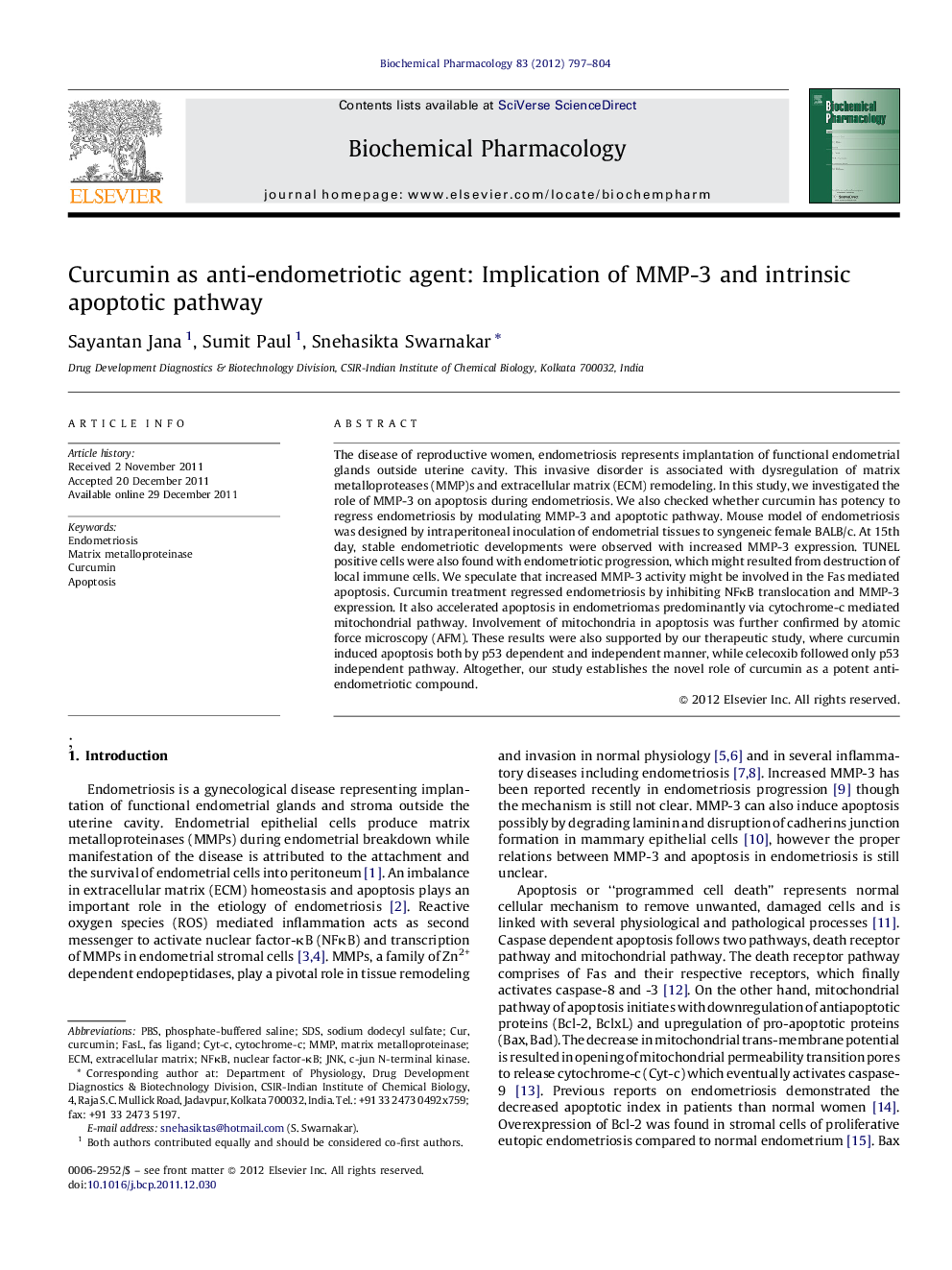| Article ID | Journal | Published Year | Pages | File Type |
|---|---|---|---|---|
| 2513524 | Biochemical Pharmacology | 2012 | 8 Pages |
The disease of reproductive women, endometriosis represents implantation of functional endometrial glands outside uterine cavity. This invasive disorder is associated with dysregulation of matrix metalloproteases (MMP)s and extracellular matrix (ECM) remodeling. In this study, we investigated the role of MMP-3 on apoptosis during endometriosis. We also checked whether curcumin has potency to regress endometriosis by modulating MMP-3 and apoptotic pathway. Mouse model of endometriosis was designed by intraperitoneal inoculation of endometrial tissues to syngeneic female BALB/c. At 15th day, stable endometriotic developments were observed with increased MMP-3 expression. TUNEL positive cells were also found with endometriotic progression, which might resulted from destruction of local immune cells. We speculate that increased MMP-3 activity might be involved in the Fas mediated apoptosis. Curcumin treatment regressed endometriosis by inhibiting NFκB translocation and MMP-3 expression. It also accelerated apoptosis in endometriomas predominantly via cytochrome-c mediated mitochondrial pathway. Involvement of mitochondria in apoptosis was further confirmed by atomic force microscopy (AFM). These results were also supported by our therapeutic study, where curcumin induced apoptosis both by p53 dependent and independent manner, while celecoxib followed only p53 independent pathway. Altogether, our study establishes the novel role of curcumin as a potent anti-endometriotic compound.
Graphical abstractFigure optionsDownload full-size imageDownload as PowerPoint slide
